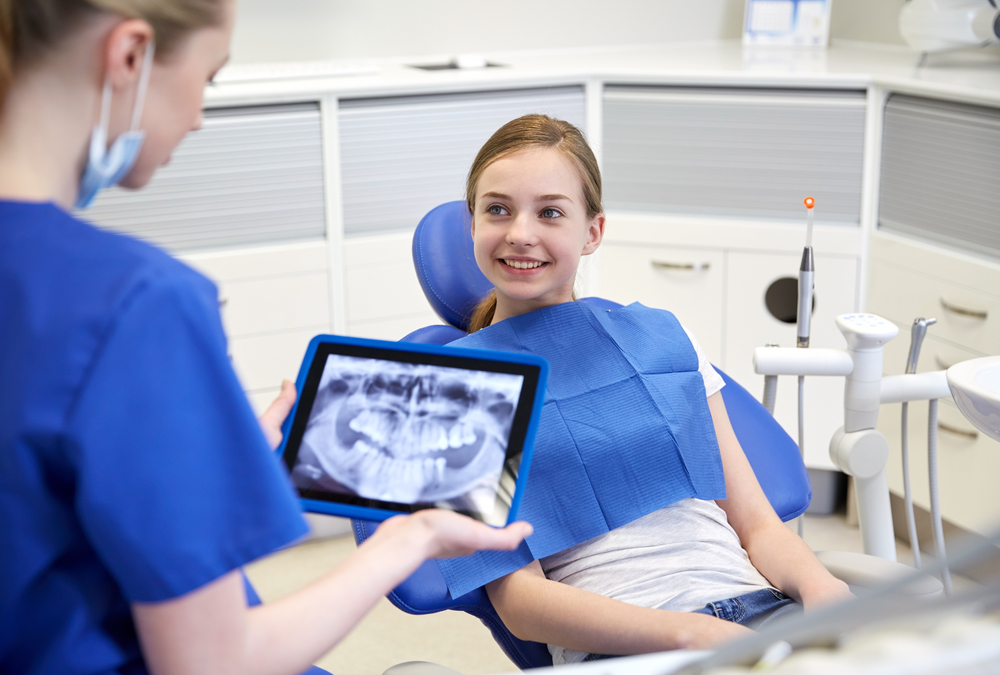Toothbrush Tips for Cold and Flu Season
Cold and flu season has arrived, and we bet you've stocked up on cough drops, tissues, and hand sanitizer. But have you thought about your toothbrush? While proper toothbrush hygiene...

As a parent, one of your main goals is to keep your children healthy and safe. Part of that is bringing them into the dentist for regular dental exams and cleanings. If your dentist informs you that your small child needs a significant dental procedure, they’re also likely going to recommend dental sedation to help them get through it.
Whether dental sedation is safe for your child depends on their previous medical history, their current medical needs, and many other factors. Is it safe for your child to be sedated during dental work?
Often, children may need sedation for a significant procedure or treatment. Dental sedation involves the application of medication to help a patient be relaxed, calm, and feel less anxious. Sedation drugs can be administered in different forms including breathed in, pill form, or part of an intravenous line in the hand or arm.
In 2016, the American Academy of Pediatrics (AAP) and the American Academy of Pediatric Dentistry (AAPD) released a clinical report with updated guidelines for dentists and oral surgeons to follow when providing sedation dentistry or general anesthesia to children. Talk with your child’s dentist or oral surgeon about the different types of sedation or anesthesia they recommend for your child prior to the appointment.
A mild sedative, Nitrous Oxide is the least invasive option when it comes to types of sedation and anesthesia that are safe to use on children. Commonly known as “giggle gas” or “laughing gas,” a child can breathe in the gas with a little oxygen. Nitrous Oxide doesn’t typically make patients fall asleep, but most will become significantly more relaxed. Side effects include being a little silly and lightheaded, so it’s always best to discuss this as a possible side effect with your child prior to having it administered.
Often a combination of medications, this type of sedation is commonly used on older children and adults. This type of sedation leaves your child awake for the procedure while allowing their body to relax significantly. Patients who have higher levels of anxiety often benefit from this type of sedation. Your child will feel wholly relaxed, able to communicate with your dentist, and may not even remember their entire dental treatment.
While under moderate sedation children are sleepier, but they are typically able to do what the dentist asks for them to do. They will be able to breathe on their own and will usually wake up easily if they do fall asleep. Most children will not remember anything about their procedure while under moderate sedation.
This type of sedation involves intravenous (IV) medications to help a child sleep throughout the procedure. While your child may still move slightly and sometimes make noise, they may not be able to breathe well on their own. While under deep sedation, there should always be at least one qualified professional who can monitor your child’s heart rate, heart rhythm, blood pressure, and breathing until the child wakes up.
General anesthesia is a more extreme option for all patients, and especially for children. During general anesthesia, the child will be completely unconscious. This form of sedation has some risk attached, as well as a more extended recovery period. Anesthesia can be given in a dental office that is specially equipped, an ambulatory surgical center (ASC), or a hospital.
In 2016, the American Academy of Pediatrics (AAP) and the American Academy of Pediatric Dentistry (AAPD) released a clinical report with updated guidelines for dentists and oral surgeons to follow when providing sedation or anesthesia to children. It’s vital for parents to know their options while determining the best course of action for their child. Talking with your child’s dentist or oral surgeon about the type of sedation or anesthesia they recommend before any scheduled treatments.
While dental sedation is a good option for most patients, not everyone is a good candidate. Dr. Aubrey Baudean DDS will review a child’s medical history, including current medications, and have their vital signs checked prior to administering any sedation methods. For more information on if your child is a good candidate for dental sedation, schedule a consultation appointment with Dr. Baudean today.